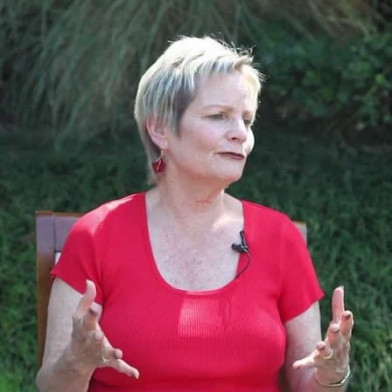The following is an excerpt from the new book, Essential Retirement Planning for Solo Agers, by Sara Zeff Geber, Ph.D. In the book, Dr. Geber highlights many ways single and childless older adults can plan for a safe, secure, and meaningful retirement. Adaptability and flexibility are two traits of successful Solo Agers, but everyone could benefit from this advice!
When we were in our teens and twenties, our whole lives stretched out before us. We were still forming our opinions, our political beliefs, our preferences for one food or another, action movies or comedies, living in the country, the suburbs or the city, and what we might do for a career or job. We were flexible and strongly influenced by pop culture, the media, and (occasionally) our parents, though we were loathed to admit the latter. As we settled into midlife, these preferences crystallized—a natural part of maturation. You’ve probably heard the expression “set in his ways.” It’s used to describe someone intractable in their opinions or locked into a certain way of doing things, to the exclusion of other alternatives. As we progress into and through middle age, these preferences and biases often become even more solid and impermeable. This transition happens to everyone, but crystallization can backfire as we get older. Ironically, in later life de-crystallizing becomes more important. We need to explore our areas of rigidity and determine how those fixed ideas may be limiting our lives or keeping us in situations that have outlived their usefulness.
Lisa provides a good example of how a rigid thought pattern can affect your life.
Lisa is a single woman in her early sixties, a third-generation San Franciscan from a tight-knit family that had emigrated from Italy around 1910. She was surrounded by siblings as well as many cousins, nieces, and nephews. In recent years, the younger generation in her family had started to leave the city because of the high cost of living, most of them moving to somewhat less expensive towns east of San Francisco.
As Lisa and her contemporaries—friends as well as same-generation family members—started retiring from their midlife careers, Lisa was caught in a difficult situation. The upkeep of her eighty-year-old Victorian house was becoming prohibitive, and the pervasive fog and humidity were problematic for her developing arthritis. Over the course of five years, she watched many of her close friends and family members move to the much-sunnier east bay while she remained in the city, tied to a mindset of being a San Franciscan, a city person. She believed she would feel bored and out of place elsewhere.
Do you see a little of yourself in Lisa? What are your areas of rigidity? Sometimes our inflexibility shows up with regard to food. The more we learn about what keeps us healthy—especially in later life—the more our diets need to change and flex with new information. Most baby boomers grew up on “PBJ”–– Peter Pan peanut butter with Welch’s grape jelly on Wonder Bread. We ate Tater Tots and fish sticks and the occasional TV Dinner. If we were lucky, our parents were at least listening to the conventional wisdom at the time and not letting us eat too many sweets or sugary sodas.
As we grew up, even more, “convenience” foods hit the market and we added the more adult versions of the PBJ to our diet—things like BLTs, pizza, burgers, and fries. At about the time we hit our forties, food scientists started to wag their fingers at us, lecturing us about the sugar and fat in those foods and what they were doing to us. Nutrition scientists were discovering which foods would keep us healthy and which ones were more likely to send us to an early grave. Now, as baby boomers become older adults, most of us know what we should and shouldn’t eat. But are we changing our habits?
If you are diabetic, are you avoiding sugar and simple carbohydrates? If you have high blood pressure or other heart problems, are you staying away from added salt? Are you curbing your fat intake to keep your cholesterol in check? To stay healthy, we need to adapt our food choices as we get older, changes that will differ from person to person.
How many times have you heard a friend say something like, “I have to keep nagging my mother to take her blood-thinners. I don’t want her to end up in the hospital again!” You aren’t going to have an adult child calling every day to make sure you follow a diet regimen or take your medications. Your spouse might or might not be willing or able to nag you, and if you are single, you will have to keep yourself in line––with discipline and tenacity, plus a willingness to change your routine. The ability to see the world differently and the willingness to adapt to a new reality are critical as we age.
 Dr. Sara Zeff Geber, Ph.D., is a speaker, author, retirement coach, and the founder of LifeEncore.™ Sara has a special interest in a group she calls “Solo Agers:” people over 50 without children and those aging alone. Her book, Essential Retirement Planning for Solo Agers: A Retirement and Aging Roadmap for single and Child-free Adults, was published by Mango Press on April 15, 2018. To find out more about Sara Zeff Geber, please check out her website, www.LifeEncore.com
Dr. Sara Zeff Geber, Ph.D., is a speaker, author, retirement coach, and the founder of LifeEncore.™ Sara has a special interest in a group she calls “Solo Agers:” people over 50 without children and those aging alone. Her book, Essential Retirement Planning for Solo Agers: A Retirement and Aging Roadmap for single and Child-free Adults, was published by Mango Press on April 15, 2018. To find out more about Sara Zeff Geber, please check out her website, www.LifeEncore.com


